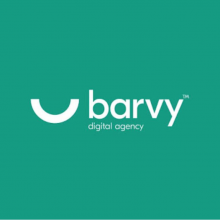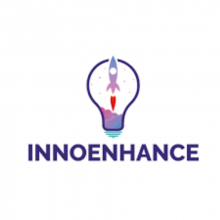
There are 28 Companies in Ireland
that provide NodeJS Development Services!
Ireland has an international reputation as a center of excellence in IT. Both multinationals and home-grown talent contribute to making technology one of the fastest-growing industries in the country. Additionally, its IT Services market is worth $4.43 billion in 2025.
Discover Top IT Companies in Ireland specialized in NodeJS and other related services. Find the best IT service providers for your projects.
Node Js is a JavaScript runtime environment that allows developers to run JavaScript code on the server-side. Unlike traditional server-side technologies like PHP or Ruby, which are typically used for handling server tasks, Node.js enables developers to use JavaScript for both client-side and server-side development.
Handpicked companies • No obligation to hire • 100% risk-free
Featured Companies in Ireland
This month, the following NodeJS Development companies managed to provide an outstanding service and support. It's worth taking a look.
We are a boutique software development company housing 100+ expert developers. Specialising in web, mobile, blockchain, and AI software development.
Explore Top NodeJS Development Companies in Ireland
Techgropse is a leading Mobile App and Web Development Company, dedicated to turning innovative ideas into remarkable digital solutions. 500+ Clients
Fire Bee Techno Services is an ISO-Certified Blockchain and AI Development Company In india and across the world with 13+ years of experience.
IT Staff Augmentation - Trusted by Fortune 500 Companies - EU/US based (Dublin-Sarasota-Budapest)
Digitally Transform B2B, B2C, B2B2C Business
We build bespoke custom AI, web and mobile apps faster and better. We work with startups and SMBs.
Leading AI Solution Provider Empowering Enterprise Expansion
Website Design, E‑commerce & Digital Marketing
We deliver global connected car software and real-time analytics solutions to world-renowned vehicle manufacturers.
Digital solutions for your business! Our aim is to provide you with personalized services that meet your company's requirements.
Ireland-based Innoenhance builds digital solutions—from apps to websites—to help businesses grow, convert, and lead online.
Services:
SOLEAD - custom software solutions since 2019. Remote, dedicated IT teams. Experienced engineers, competitive pricing. Visit our website for more.
WebsiteDesignAgency.ie is the most trusted company for Web Design and Development in Ireland.
Services:
LuxoSoft offers luxury mobile app development, UI/UX design, and web solutions using React Native and Flutter for premium client experiences.
Capaciteam is a top-ranked IT strategy consulting and software development company in Ireland, committed to offering tailored IT solutions worldwide.
Services:
- 1
- 2
Filter NodeJS Development Companies in Ireland by Cities
Find the right tech company near you or from a specific city. Some of the best companies might be located in smaller cities.
Find more NodeJS Development companies around the world
TechBehemoths is the world's most advanced and user-friendly platform to match IT Companies with real clients without hustle.
ICT Industry in Ireland: General Profile and Insights
Ireland has an international reputation as a center of excellence in IT. Both multinationals and home-grown talent contribute to making technology one of the fastest-growing industries in the country.
This makes Ireland the second-largest exporter of computer and IT services in the world, with over 97% of domestic products sold in international markets. The sector accounts for over €50 billion of exports from Ireland each year. Additionally, its IT Services market is worth $4.43 billion in 2025.
900 software firms across Ireland employ more than 24,000 people in the IT sector.
Eight of the top 10 global IT companies have established a significant presence here. Giants established in Ireland include Intel, HP, IBM, Microsoft, Apple, Google, Facebook, LinkedIn, Amazon, Airbnb, PayPal, eBay, and Twitter.
At the same time, Ireland has the largest concentration of Top 10 tech companies outside the US. It can be considered the European capital of ICT. All of the top Cloud providers have data centers in Dublin, making it the most data-centric capital outside the U.S.
Why Should You Work With Irish IT Companies?
A well-developed IT infrastructure in Ireland is a key factor for Irish web and software companies’ success in the international market. This, combined with balanced government policies and an advanced business culture, made Irish IT companies reliable and granted multiple investments and clients.
After Brexit, even more companies relocated to Ireland seeking a “digital shelter” that would help them to benefit from EU fiscal facilities and accessibility to the European market. In this way, many International IT companies that were established in the UK can now be found in Ireland.
Technology Ireland 2022-2026 is a plan that has goals to make this country a leader in technology globally by attracting talent, conducting market analysis, industry engagement, and implementing educational initiatives. It serves as a roadmap that helps Ireland to maintain its top positions in the tech industry and create many possibilities for future tech innovations.
Also, the IDA has incredible support for international companies coming to Ireland. The favorable corporate Tax regime of 12.5% has led to all the major players having a significant presence in Ireland.
What to Pay Attention to When Working With Irish IT Companies
Since all advantages come with challenges, Ireland is not an exception. The increasing number of IT companies in Ireland can rapidly bring market saturation and even a deficit in the workforce. The presence of tech giants in the local IT market has been seen from the start as a danger to the pure-Irish business tradition, but on the other hand, this brings 9-figure digits to the budget each year from taxes only.
The challenge for Irish IT companies and web agencies, but also for their clients, results in the need to source out talent from other countries that do not always provide the same quality services and do not benefit from a similar tech education and experience as Irish professionals do.
How Reliable Are Irish IT Companies
Ireland has over 14,000 startups, and 8 of them became unicorns, alongside a full-scale startup environment that can help find partners and clients. This country also has a rich talent pool of software developers and skilled tech experts with an easy hiring system.
The Irish IT companies enjoy a solid reputation on the international web and software market and a high level of trust from foreign companies. Due to the presence of tech giants in the local market and a traditional business culture, Irish companies have made a name and become competitive on the global IT market.
How Does the Irish IT Industry Relate to the Neighboring Countries?
The Irish IT sector has performed strongly compared to neighboring countries. Ireland has positioned itself as a leading destination for technology companies and has experienced significant growth in its IT sector over the years.
Compared to neighboring countries like the United Kingdom, France, and Germany, Ireland has been successful in attracting multinational tech companies, including major players such as Google, Facebook, and Microsoft, to establish their European headquarters or regional offices in the country. Dublin, in particular, has emerged as a prominent tech hub and has been dubbed the “Silicon Docks” due to the concentration of tech companies in the area.
Ireland's favorable business environment, low corporate tax rate, skilled workforce, and supportive government policies have contributed to its success in the IT sector. The country has invested in education and training programs to develop a highly skilled workforce in areas such as software development, data analytics, and cybersecurity.
Furthermore, Ireland's membership in the European Union provides access to a vast market and facilitates trade and collaboration with neighboring countries. The country's strong connections with the United States, particularly in the field of technology, have also been beneficial for its IT sector.
While other neighboring countries also have well-developed IT sectors, Ireland's focus on creating a favorable business environment, fostering innovation, and attracting international investment has helped it perform well in comparison. However, it is important to note that each country has its unique strengths and specialities in the IT sector, and competition and collaboration between these countries contribute to the overall growth and advancement of the industry in the region.
Dublin and Cork - The Best Places for IT in Ireland
According to Peter Lawless from 3R SEO Consultants Dublin, the best places for doing IT in Ireland are Dublin due to its booming Fibre infrastructure for Data centers and development, and Cork as the site of Apple manufacturing.
Dublin and Cork are ideal locations for IT businesses in Ireland due to their robust technological infrastructure, skilled workforce, established IT ecosystems, favorable business environment, market access, and high quality of life. These cities offer reliable internet connectivity, a talented pool of IT professionals, a thriving tech community, government support, access to global markets, and a great living environment. Dublin, as the capital, serves as a global tech hub, while Cork provides proximity to European markets and is growing as a tech and innovation center. Together, these factors create a conducive environment for IT companies to thrive in these cities.
What is NodeJS and what are its benefits for your projects?
Node Js is a JavaScript runtime environment that allows developers to run JavaScript code on the server-side. Unlike traditional server-side technologies like PHP or Ruby, which are typically used for handling server tasks, Node.js enables developers to use JavaScript for both client-side and server-side development. Below we’ll dive deeper into the types of projects built with it, and how companies can leverage it for their projects:
Node.js is built on the V8 JavaScript engine from Google, making it incredibly fast and efficient. It uses an event-driven, non-blocking I/O model, which makes it ideal for building scalable and real-time applications. Node.js is particularly well-suited for projects that require high concurrency, such as web applications, APIs, chat applications, streaming services, and more. It has a large and active community, which has led to a rich ecosystem of libraries and packages available via npm (Node Package Manager), simplifying development tasks.
As for the type of projects that can be built using Node.js, we can name the following:
- Web Applications: Many web applications are built using Node.js, often using web frameworks like Express.js. These applications can range from small personal websites to large-scale, enterprise-level platforms.
- APIs (Application Programming Interfaces): Node.js is commonly used to create RESTful APIs that allow different services or applications to communicate with each other. This is essential for building services that provide data to mobile apps, websites, and other clients.
- Real-time Applications: Node.js is favored for real-time applications, such as chat applications, online gaming, and collaborative tools. The event-driven architecture of Node.js is well-suited for handling multiple concurrent connections.
- Streaming Services: Media streaming platforms and services that deliver audio and video content use Node.js to efficiently manage and serve media files to users.
- IoT (Internet of Things): Node.js is used in IoT projects to handle data collection from sensors and devices, process that data, and communicate with cloud services.
- Serverless Functions: Node.js is a popular choice for building serverless functions or AWS Lambda functions due to its lightweight and quick startup times.
Node.js is a versatile technology that can be effectively utilized in both smaller and larger projects, but its suitability hinges on several key factors.
For smaller projects, Node.js offers distinct advantages. Its event-driven, non-blocking I/O model allows developers to rapidly prototype and develop applications. This makes it an excellent choice for creating functional prototypes, minimum viable products (MVPs), or simple web tools swiftly.
Node.js's efficiency in handling I/O operations can lead to responsive user experiences, which is valuable for small-scale applications like personal websites, blogs, or straightforward web tools. Moreover, Node.js itself is lightweight, making it suitable for projects with minimal hardware or resource requirements. It doesn't impose significant overhead, making it a cost-effective option.
Node.js is also well-suited for serving as a backend for Single-Page Applications (SPAs), handling API requests, and serving static files efficiently. Its ability to use JavaScript both on the server and client sides can reduce development costs by enabling code reuse and a single development skill set.
For larger projects, Node.js remains a compelling choice for various reasons. Its ability to handle a large number of concurrent connections positions it favorably for projects with high traffic and user loads. It's designed to scale efficiently, allowing it to distribute workloads across multiple servers or containers, making it scalable and robust.
In larger applications with complex functionality, Node.js can be employed to build microservices that communicate efficiently with each other. This modular approach enhances maintainability and facilitates development on a larger scale.
Node.js's event-driven nature also makes it an ideal candidate for larger projects requiring real-time features. It excels in managing multiple simultaneous connections, making it suitable for applications such as messaging platforms, online gaming, or collaborative tools.
Additionally, Node.js continues to offer development speed advantages regardless of project size, which can be particularly valuable in meeting tight project deadlines.
Furthermore, for larger projects with JavaScript as the primary language on both the frontend and backend, Node.js facilitates streamlined development processes, code sharing, and collaboration among teams working on different parts of the application.























